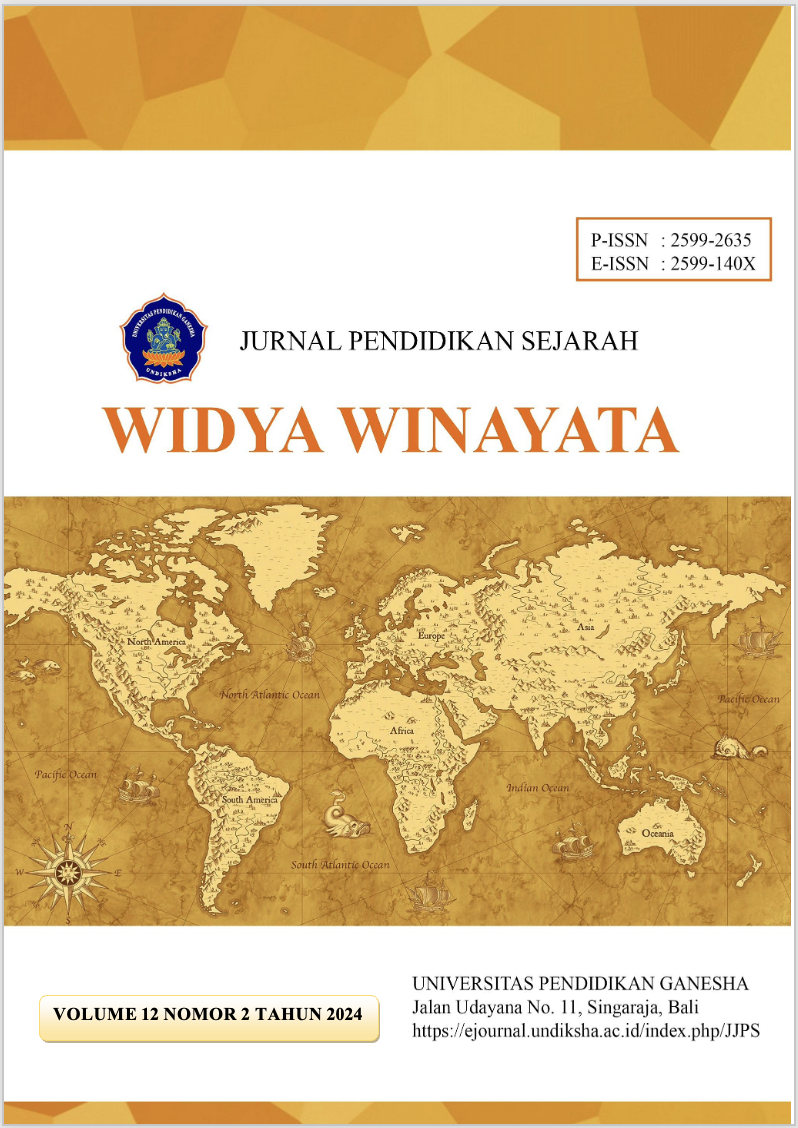History Of Samyang Dresti Vihara In Penglatan Village, Buleleng, Bali: Background, Structure, And Its Potential As A Source For Learning History In High Schools
DOI:
https://doi.org/10.23887/jjps.v12i2.69094Abstract
This research aims to find out: (1) The background to the establishment of the Samyag Dresti Vihara in Penglatan Village, Buleleng, Bali. (2) The structure of the Samyag Dresti Vihara in Penglatan Village, Buleleng, Bali. (3) Aspects of the Samyag Dresti Vihara in Penglatan Village, Buleleng, Bali which can be used as a source for studying history in high school. The research method used is a historical research method with a qualitative approach including: (1) Heuristics: observation techniques, interviews, document study. (2) Source criticism. (3) Interpretation. (4) Historiography. The research results show that: (1) The background to the founding of the Samyag Dresti Vihara began with a teacher named Ketut Sri Madya who studied morality originating from Buddhist teachings. Ketut Sri Madya is known to be powerful in three villages, namely Petandakan, Alasangker and Penglatan, so these three villages also follow the teachings of Buddhism. When carrying out religious services, Buddhists do so in Petandakan and Banjar villages. After several years, the Samyag Dresti Vihara was built and became a place of worship for Buddhists in Penglatan village. (2) The building structure of the Samyag Dresti Vihara is local architecture with typical temple and stupa buildings which are symbols of Buddhism. (3) Aspects that can be developed as sources for learning history in high school are: (1) Historical aspects, (2) Spiritual aspects, (3) Social aspects, (4) Knowledge aspects.
Downloads
Published
How to Cite
Issue
Section
License
Copyright (c) 2024 Vita Octavia Anggraini, Ketut Sedana Arta, I Wayan Pardi

This work is licensed under a Creative Commons Attribution-ShareAlike 4.0 International License.





.png)
